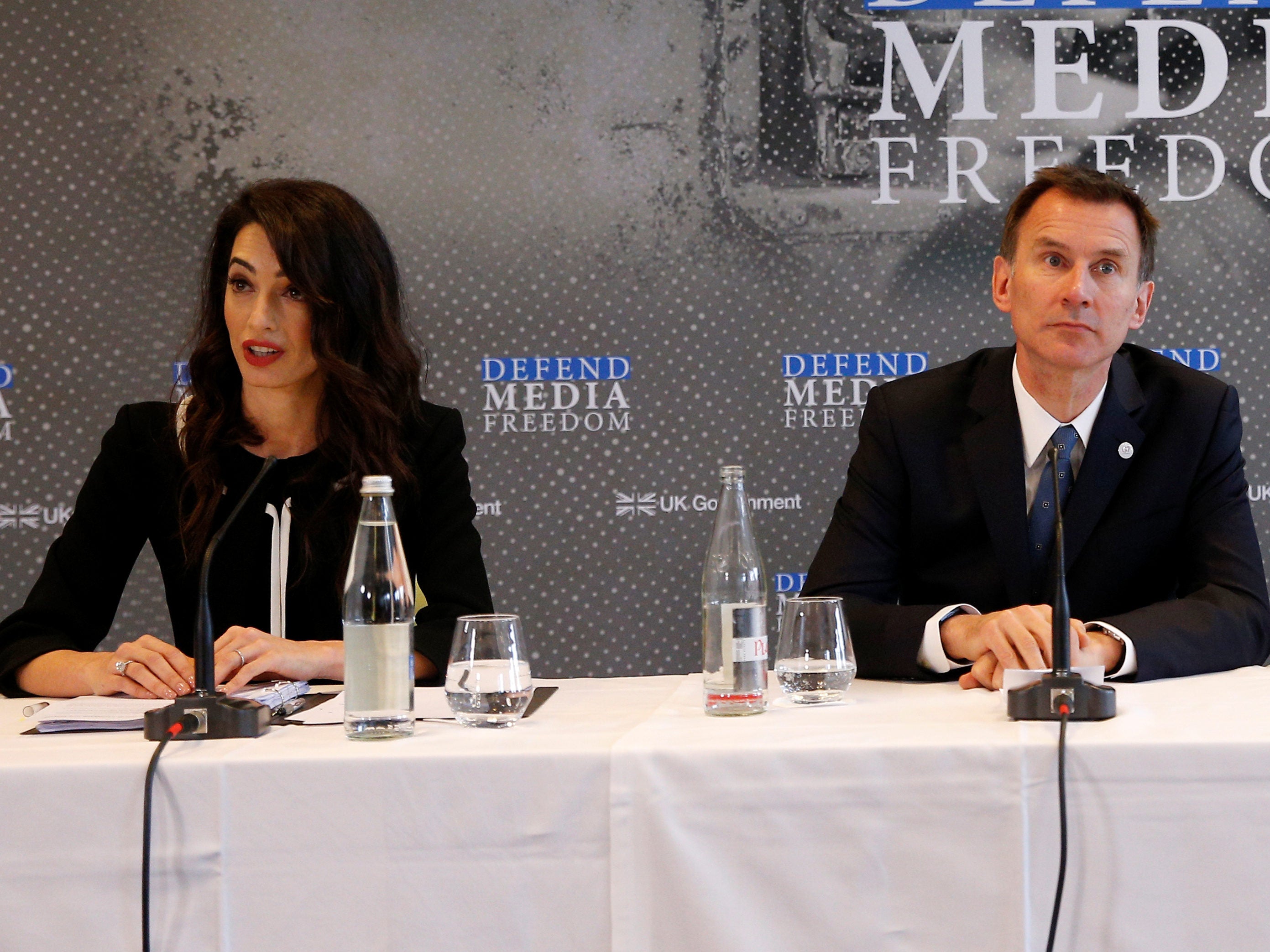
The Foreign Office’s media freedom campaign is lacking in resources and detail, a cross-party group of MPs has claimed.
The Foreign Affairs Select Committee said in a report published today that the campaign and other recently-launched initiatives amounted to a “good start” towards defending media freedom worldwide, but that the UK ought to “go further”.
Former Foreign Secretary Jeremy Hunt (pictured, right) made media freedom one of the department’s priorities for 2019.
But committee chairman Tom Tugendhat described the Foreign Office’s campaign as “well-intentioned” but “short on resources, short on detail and short on sustained commitment”.
In the report, MPs shared concerns the Foreign Office has “allocated too few resources, given too little detail about how it will fulfil its campaign, and taken too passing an interest in how to make it sustainable”.
Witnesses told the committee the campaign risked being “little more than a public relations exercise” and that the UK had not done enough “materially to punish the violators of media freedom”.
Many witnesses also said the UK seemed more concerned with its trade interests, according to the report, which noted Hunt had raised commercial relationships when asked whether the UK would take action against Saudi Arabia for the murder of Jamal Khashoggi.
Hunt’s Foreign Office announced earlier this year under former Prime Minister Theresa May’s administration that it had appointed human rights lawyer Amal Clooney (pictured, left) as its special envoy on media freedom and made her head of a panel of experts aiming to repeal “draconian” anti-media laws abroad.
A two-day Defend Media Freedom conference costing the Foreign Office an estimated £2.4m was also co-hosted by the UK and Canadian governments in London this July.
An overall budget of more than £4.5m was allocated to the media freedom campaign for the 2019/20 financial year, according to the committee report.
Tugendhat said the conference was a “good start”, but added: “The UK should call out poor treatment of journalists. Some think our Government is prioritising trade over human rights.
“We need to be clear that those who violate media freedom must be punished. This must extend to those who project their abuse online and across borders, with the result that no journalist is safe, even if they work from a ‘free’ country.”
The committee’s report made ten recommendations to the Foreign Office, including suggestions that the department should sanction and publicly shame authorities in countries such as Saudi Arabia and Malta that attack the media or persecute journalists.
Other recommendations included:
- Support training for foreign law-enforcement organisations to help them protect journalists
- Closer coordination with the Home Office over visas for persecuted journalists, as well as any family members and “associates”
- Putting online and digital threats at the “heart” of its strategy
- Extending funding of the BBC World Service to give it “greater financial certainty”
- And considering support for an “international mechanism to investigate and punish the abuse of journalists if governments will not”.
The committee asked the Foreign Office for a twice-yearly update on its campaign and vowed to revisit the topic to assess what progress has been made.
Press Gazette has contacted the Foreign Office for a response to the report.
In a March submission to the group of MPs, the Government department said its media freedom campaign was its “priority campaign for 2019”, adding that it would “press for legislation to protect, not constrain, media freedom”.
The Foreign Office added in July and August that it was “working to ensure the sustainability of the campaign by designing it as a five-year programme, led each year by a different country”, with Canada leading in 2020.
It also said it would “increasingly be speaking up when journalists are intimidated or attacked” and wanted to “increase the costs” for media abusers through sanctions “where relevant”.
Picture: Reuters/Stephane Mahe
Email pged@pressgazette.co.uk to point out mistakes, provide story tips or send in a letter for publication on our "Letters Page" blog

